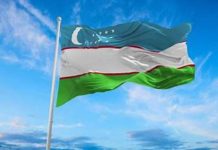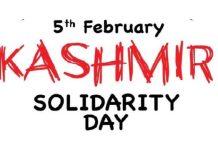By Qamar Bashir
The September 8th public meeting did not attract the large crowd the PTI leadership had
hoped for—one that could have put significant pressure on the government and provided
much-needed public support for the PTI’s key demands, which included the release of
Imran Khan, the configuration of election results based on Form 45, the release of
arrested workers, the army stepping back from politics, and ensuring the judiciary’s
independence. However, ironically, the government ended up aiding the PTI’s cause by
placing containers to block all routes to the venue, dispersing the crowd with tear gas,
and making a series of arrests after the event.
These unnecessary and poorly thought-out actions by the government ultimately played
into the PTI’s hands. As the media shifted its focus from the less-than-expected turnout to
the government’s aggressive and disproportionate response, it inadvertently boosted the
PTI’s narrative. Had the government not taken such measures, it might have dampened
PTI’s momentum, demoralized its leadership, and disillusioned its supporters. But,
unfortunately for the government and establishment, and fortunately for the PTI, the
government did exactly what it should have avoided.
To add insult to the injury, the arrest of PTI parliamentarians within the premises of the
parliament and the rumors of abduction of the Chief Minister and other leaders catapulted
the popularity of the PTI to new heights, increased its sympathy vote and conversely
eroded the political capital of the government and the establishment.
Instead of exercising grace and restraint, the government responded to the tall claims,
threats, and foul language from the opposition with even worse language. Rana
Sanaullah, the government spokesman and de facto spokesperson for the establishment,
hurled even more severe accusations and threats, reminiscent of the way Sultan Rahi used
to challenge villains in old movies. He went as far as to challenge the KP Chief Minister,
daring him to enter Punjab and face severe consequences. Sanaullah warned that the
Chief Minister would not be allowed to hold a public meeting at Minar-e-Pakistan and
would be insulted in a manner even worse than what was done to the Punjab Chief
Minister.
These statements flagrantly disregarded the constitutional rights guaranteed to every
citizen of Pakistan. Article 15 of the Constitution ensures the freedom of movement,
stating, “Every citizen shall have the right to remain in, and, subject to any reasonable
restriction imposed by law in the public interest, enter and move freely throughout
Pakistan and to reside and settle in any part thereof.” Further, Article 16 guarantees the
freedom of assembly, providing that “Every citizen shall have the right to assemble
peacefully and without arms, subject to any reasonable restrictions imposed by law in the
interest of public order.” Finally, Article 19 guarantees freedom of speech, ensuring
that every citizen has the right to express their views, subject to restrictions related to the
glory of Islam, national security, and public order. The threats and challenges issued by
the government’s spokesperson clearly violated these fundamental rights enshrined in the
Constitution, which protect every citizen, including public figures like the KP Chief
Minister.
In its reactive press conference, the PTI accused the government and establishment of
subverting the Constitution, violating laws and regulations, disrespecting the sanctity of
Parliament, abducting party leaders and workers, and suffocating the freedoms of the
press, speech, and assembly—rights guaranteed under the Constitution.
During the press conference, the PTI leaders expressed regret for any inadvertent remarks
made against the state, the military, and women in general. However, they stood by the
substantive parts of the speech, particularly those delivered by the KP Chief Minister.
The General Secretary fully endorsed the Chief Minister’s statements regarding the role
of the Army. Specifically, he supported the claim that the military should “put its house
in order” and return to its barracks, vacating roles not constitutionally mandated to them.
He emphasized that the Army should refrain from interfering in the electoral process,
influencing the selection of parliamentarians, and undermining the people’s mandate.
Furthermore, he called for the military to divest from its business, investment, trade, and
real estate ventures, as these activities fall outside the Army’s core constitutional
responsibilities. His key demand was for the Establishment to loosen its iron grip on the
country, free the country and allow the nation and its people to breathe freely.
The speaker apologized for the part of the speech that insulted journalists but endorsed
the substantive claim, stating that conducting interviews in the drawing rooms of
individuals who were abducted, tortured, and coerced into giving confessional statements
under duress goes against the established norms and ethics of journalism.
They also apologized for the derogatory remarks made against Parliament but stood by
the part where the KP Chief Minister referred to it as a “faux parliament” lacking any
mandate or endorsement from the people, calling its members stooges of those who
brought them to power.
The speakers then announced a countrywide protest to be held on the coming Friday,
condemning the unconstitutional actions of the government. The protest’s main
objectives are to demand the release of arrested PTI leaders, including Imran Khan, and
to call for free and fair elections.
Here’s the corrected and improved version of your text:
During the press conference, the KP Chief Minister, who had been absent for several
hours, returned to his seat. It was revealed that he had been in a meeting with the
establishment, discussing various political and law-and-order issues. However, the full
details of these discussions came to light later. In a separate interview, Faisal Vawda
added a critical perspective, hinting that while the Chief Minister was able to return this
time, if a similar episode were to occur again in the future, he would face severe
consequences.
The disproportionate reaction of the government and establishment against the PTI has
once again elevated the party to a high moral ground, significantly boosting its political
capital and public sympathy. This overreaction has had a negative impact on the law and
order situation, heightened political tensions, and further eroded Pakistan’s international
image. It has also scared away foreign traders, investors, and businessmen, worsening the
overall perception of the country and further depleting public support for the government
and the establishment.
Qamar Bashir
Former Press Secretary to the President
Former Press Minister to the Embassy of Pakistan to France
Former MD, SRBC, CEO, ATV

















